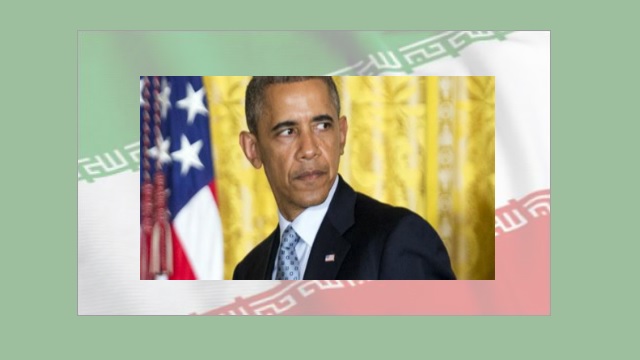Biden is the primary obstacle to Israeli victory

The time has come to discuss the Biden administration’s relationship with Israel. With each passing day, two things become obvious. First, Israel cannot fight the war without U.S. resupply of the Israel Defense Forces. As a consequence, Israel is beholden to the administration’s directives. And second, if Israel follows the Biden administration’s directives, it will lose the war.
Israel’s dependence on the United States was stated bluntly by retired IDF Maj. General Yitzhak Brick in an interview earlier this week.
“All of our missiles, the ammunition, the precision-guided bombs, all the airplanes and bombs, it’s all from the U.S. The minute they turn off the tap, you can’t keep fighting. You have no capability. … Everyone understands that we can’t fight this war without the United States. Period.”
Brick went on to explain that President Joe Biden’s demand that Israel permit “humanitarian aid” to enter Gaza means that he is demanding that Israel keep Hamas fully supplied with food, water and fuel.
His demand that Israel minimize Palestinian civilian casualties endangers IDF soldiers and renders the expansion of the ground offensive into central and southern Gaza, where the bulk of Hamas’s force is now located, almost impossible to carry out. Brick suggested various forms of long-term tunnel warfare and other suggestions for how the IDF may be able to defeat Hamas over time while operating within the constraints that Biden and his top advisors are dictating.
It is hard to judge whether Brick’s suggestions are workable without access to situational intelligence about conditions on the ground in southern Gaza. At a minimum, it is clear that Biden’s preference for the lives of civilians in Gaza over the lives of IDF soldiers on the ground ensures that far more soldiers will be killed in the fighting than would otherwise. Three weeks ago, the administration began demanding that Israel limit (or cancel entirely) its pre-ground battle aerial bombings. Consequently, in the week that preceded this week’s “humanitarian pause,” the IDF’s battle losses were overwhelmingly the consequence of sniper fire from Hamas terrorists hiding in buildings that the air force did not destroy before the battles, due to U.S. pressure.
Then there is the issue of the hostages. Israel is duty-bound to the hostages, their families and Israeli society as a whole to rescue them. There are two ways to do this. Israel can bow to Hamas’s demands, as it is presently doing by suspending its offensive, and endangering Israel’s soldiers and civilians by permitting Hamas to rebuild and reorganize its forces, and by releasing terrorists from its prisons and retuning them to Jerusalem and Judea and Samaria. Or it can renew its military operation, locate the hostages and rescue them itself. Clearly, the second option is preferable.
Securing aid from America
Until Monday, it appeared the reason that Israel had accepted the deal it is currently operating under owed to its inability to locate the hostages. The London-based Daily Express reported on Monday that the real reason Israel is not rescuing the hostages—and instead agreed to the current deal with all of its tactical and strategic costs—is related to the Biden administration’s directive not to harm Palestinian civilians.
Based on Israeli sources, the British Daily Express reported that Israel knows where many of the hostages are located. It has opted not to rescue them because Hamas is holding the hostages among civilians. Rescuing them would involve collateral damage to those Palestinians and risk U.S. resupply, which Israel cannot fight without.
Here it is important to note that the number of actual civilians that have died as a result of Israel’s bombings remains unknown. On Oct. 25, Biden acknowledged that the Gaza Health Ministry’s data on civilian casualties lacks credibility in light of the fact that the Health Ministry is simply an organ of Hamas and reports the numbers it is told to report by Hamas’s terror masters. That data counts every dead terrorist as a dead civilian.
Israelis were thrilled with Biden’s statement. But the next day, he apologized for it. According to Fox News, in a meeting with Muslim American leaders on Oct. 26, Biden apologized for telling the truth.
“I’m sorry. I’m disappointed with myself,” he said.
Since Oct. 26, the administration has embraced as fact Hamas’s casualty counts and uses them as the basis for its demand that Israel minimize Palestinian casualties. The administration’s willingness to ignore the fallacies at the heart of those data indicates that its policy is based on something other than concern for Palestinian civilians, and therefore is not a tactical challenge that Israel may be capable of contending with and still win.
To be sure, Biden, Secretary of State Anthony Blinken, National Security Advisor Jake Sullivan and Defense Secretary Lloyd Austin have all expressed their solidarity with Israel, as well as their revulsion at Hamas’s actions and desire to see the genocidal jihadist terror group defeated. And to be sure, Biden has taken steps to resupply Israel—requesting $14.3 billion in military supplies to Israel (although the assistance has yet to be approved by Congress or signed into law by Biden). These positions and at least partial actions lend credence to Brick’s assessment, shared by the IDF and the government, that the challenge the Biden administration’s position on civilian casualties in Gaza is an operational or tactical challenge and not a strategic conundrum.
Dealing with Fatah and the P.A.<
But there are additional indications that Biden doesn’t want Israel to win. First, there is the issue of Egypt. Due to the U.S. decision to support Egyptian President Abdel Fattah el-Sisi’s determination to prevent Gazans from fleeing to Egypt or to a third country through Egypt, the million or so Gazans who evacuated the northern end of the Strip during the fighting are now concentrated in the south. Among them are the bulk of Hamas’s forces, which Israel must destroy to win the war. Facing the U.S.-backed Egyptian refusal to permit these civilians to leave Gaza on the one hand and the U.S. directive to keep civilian casualties close to zero on the other, Israel is facing an impossible operational challenge. Brick may be right that a low-key, slow offensive would be capable of achieving the goal. But he may be wrong. Certainly, a more conventional operation would have a much higher chance of succeeding.
To this must be added the Biden administration’s demands for a post-war settlement. Israel’s goal is not only to defeat Hamas now but to prevent it from rebuilding and to prevent other terror groups from emerging in a post-war Gaza. To this end, at a minimum, Israel will be required to take two actions. First, it must retain permanent military control over all of Gaza. Second, Israel must seize a buffer zone several kilometers wide on the Gaza side of the border to protect civilian communities and military bases from a repeat of Oct. 7.
Biden and his advisers oppose both of these goals. Not only do they completely oppose Israeli military control over Gaza and the establishment of buffer zones inside Gaza, they demand that in a post-war settlement, Israel end its maritime blockade of the Gaza coast, and permit everything and anything to enter Gaza from the sea. In other words, the U.S. position is to permit terrorist forces whether they call themselves Hamas or anything else—to rebuild their capabilities unfettered in post-war Gaza.
Even worse, the administration’s position is that Gaza must be ruled by the Fatah-controlled Palestinian Authority after the war has ended, and that Gaza be united with Judea and Samaria in a post-war era, and together receive full sovereignty. In other words, the administration’s war goal is to establish a Fatah-dominated Palestinian state in these areas. On its own, this position is antithetical not only to an Israeli victory in the war. It represents an existential threat to Israel’s continued existence. Fatah—and the P.A. it runs—is a terrorist organization and regime. The P.A.’s U.S.-armed and funded security forces are Hamas’s junior partners in terror. As Eugene Kontorovich and Itamar Marcus reported in The Wall Street Journal this week, P.A.-controlled Fatah terrorists from Fatah’s Al-Aqsa Martyrs Brigades terror group posted videos of its members in Gaza participating in Hamas’s Oct. 7 slaughter. Fatah terrorists killed, tortured and kidnapped Israelis, and took videos of their actions.
Unlike Gaza, Judea and Samaria are a stone’s throw from all of Israel’s major population centers, and half a million Israelis live in cities and villages throughout Judea and Samaria. Last Friday night, the threat posed by Palestinian terrorist and paramilitary forces in Judea and Samaria to the lives of millions of Israelis came into sharp relief with the public lynching in the city of Tulkarm of two Palestinians accused of collaborating with Israeli counter-terror operations. To the roars of a crowd of thousands—secured by P.A. security forces—Hamas publicly hanged the two men from an electricity tower. The two men’s bodies showed signs of brutal torture that preceded their execution. Tulkarm is controlled by the P.A. It is located less than a kilometer from the Cross Israel Highway and a few minutes’ drive to Kfar Yona and Netanya.
Israel’s dependence on U.S. weapons makes it impossible for the Netanyahu government to publicly air the strategic threat the administration’s policies pose to its war effort and its long-term ability to survive in the post-Oct. 7 Middle East. Israel cannot risk additional stress to its position vis-à-vis the Biden administration and wants to avoid exposing the rift to its enemies already emboldened from Gaza to Lebanon, Yemen to Iran.
Congressional lawmakers face no such constraints, however. Moreover, they have an interest in exposing the truth and working to compel a change in the administration’s Hamas-enabling policies. Polling data shows that the overwhelming majority of Americans support Israel in this war and want it to destroy Hamas. The overwhelming majority of lawmakers from both parties share their views. To date, the Republican majority in the House has made no effort to exercise oversight over the Biden administration’s policies in relation to Israel’s war with Hamas, largely due to the Israeli government’s unwillingness to air the actual state of relations.
As the humanitarian pause is extended to secure the release of additional hostages and before the Christmas recess, House Republicans and like-minded Democrats should open hearings to compel the administration to explain its policies. Specifically, it should be asked to explain how Israel can defeat Hamas given the constraints the administration is placing on IDF operations. The administration should also be asked why it supports the P.A., given the P.A.’s involvement, support and defense of Hamas’s invasion of Israel, and the slaughter of its civilians on Oct. 7. Congress should also ensure that the aid package, when passed, contains no conditions on Israel’s use of the weapons it will receive.
Lawmakers must understand the source of the Israeli government’s fulsome praise for Biden. They should then take action to prevent the administration from maintaining its policy of paying lip service to an Israeli victory while preventing Israel from achieving one.
Originally published by Jewish News Syndicate
AUTHOR
Caroline Glick
Senior Fellow.
RELATED VIDEO: A decent description of Islam in under 2 minutes
RELATED ARTICLES:
Why Israel is entitled in law to the “West Bank”
Dem Lawmakers Have ‘Extremely Frank’ Conversation With IDF Over Its Counteroffensive In Gaza
‘We Can’t Ignore It Any More’: Former Israeli PM Spars With Jake Tapper Over Call To ‘Denazify Gaza’
UN Account Posts, Then Quickly Deletes Condemnation Of Hamas
‘Blank Check Approach Must End’: Dem Lawmakers Call For Conditions On Aid To Israel
White House Surges Aid Into Gaza As Pause In Israel-Hamas War Extends
City Council Meeting Erupts Into Chaos As Oakland Residents Loudly Object To Condemning Hamas
Genocidal Hatred of Jews and the West
The Land that Israel Never Stole
EDITORS NOTE: This Center for Security Policy column is republished with permission. ©All rights reserved.



